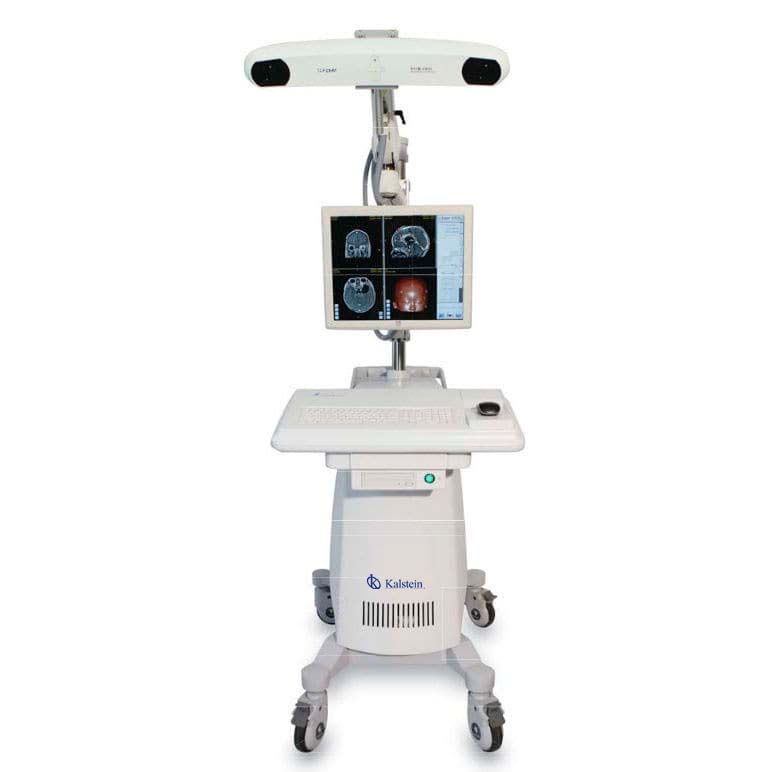A surgical navigation system is a modern medical equipment that allows the precise planning and execution of surgical procedures in the operating room, that is, it allows guiding surgical instruments such as the scalpel. It consists of a series of instruments that are connected to screens through sensors with image methods.
Surgical navigation systems offer optical tracking capabilities as well as integration with external devices such as microscopes and ultrasound. Procedures where optical surgical navigation systems can be used:
- Biopsy.
- Catheter placement.
- Tumor resection.
- Decompression of the spine.
- Pelvic or spinal fixation.
- Treatment for spinal or sacral trauma.
- Positioning of the deep brain stimulation electrode.
The planning of a surgery through an image obtained by means of a tomograph entails the precise execution of any surgical procedure, since it allows the specialist to be sure of possible unforeseen events that may arise during the surgery, thus generating a faster and less painful response for the patient, while saving moments of tension and time in the operating room.
Operation of a surgical navigation system
A surgical navigation system is based on the principle of stereoscopic vision with high precision and low cost. At present these surgical navigation system equipment mainly include polaris navigation system, micron navigation system and others.
These surgical navigation systems are intended to help accurately locate anatomical structures in open or percutaneous procedures. They are now considered an integral part of computer-assisted surgery. That is, they provide surgical procedures based on digital imaging technology and give surgeons the opportunity to perform preoperative planning and precise handling of instruments during the operation.
In this sense, surgical navigation systems work with conventional imaging techniques such as computed tomography or magnetic resonance imaging.
What do we offer you at Kalstein?
At Kalstein we are MANUFACTURERS of medical equipment of the highest quality and designed with the best technology. In this opportunity we present our innovative YR02143 computer-assisted electromagnetic surgical navigation system, which has the following characteristics:
- Widely used for surgical visualization, planning, and navigation to help minimize iatrogenic trauma to surrounding brain tissue and reduce the risk of surgical complications in cranial procedures (such as cranial neurology and ENT surgery).
- Advanced optical tracking system tracks real-time 3D position and orientation of active or passive markers attached to surgical tools, for exceptional accuracy (1.0mm spatial resolution) and reliability.
- The method of 3D modeling and simulation of anatomical structures in material (such as skin, skull, brain tissue, or target lesion) can be easily defined for surgical convenience.
- With the integrated navigation probe and advanced optical measurement technology, the surgeon can easily quantify the size and position of lesions, and then scientifically design the surgical approach.
- The system provides operators with four navigation modes for comprehensive monitoring of the navigation process.
- Intelligent software will help calibrate and compensate for unexpected changes in anatomical structure and brain change induced by removal of the intracranial lesion area.
- The YR02143 navigation system can be operated with a surgeon mouse or touch monitor mounted on the mobile cart or ceiling suspension arm.
- The system automatically saves all patient image data and registration information, to allow the surgeon to quickly upload and continue surgical navigation against unexpected power failure.
- Can be used for all ENT and neurological surgeries, especially deep intracranial lesions, small intracranial volume lesions, minimally invasive edge intracranial lesions, and minimally invasive surgeries.
For more information, we invite you to take a look at HERE


